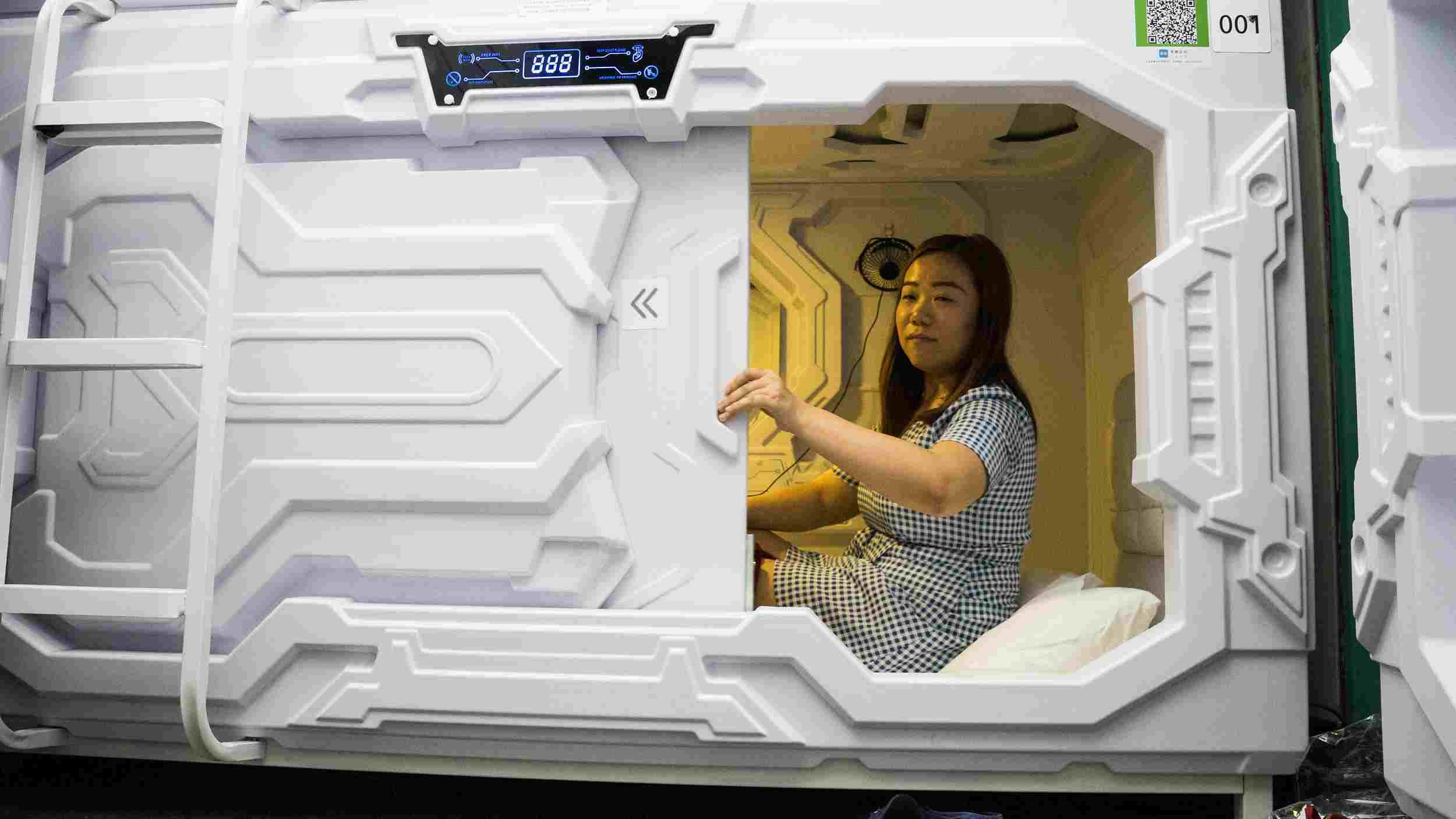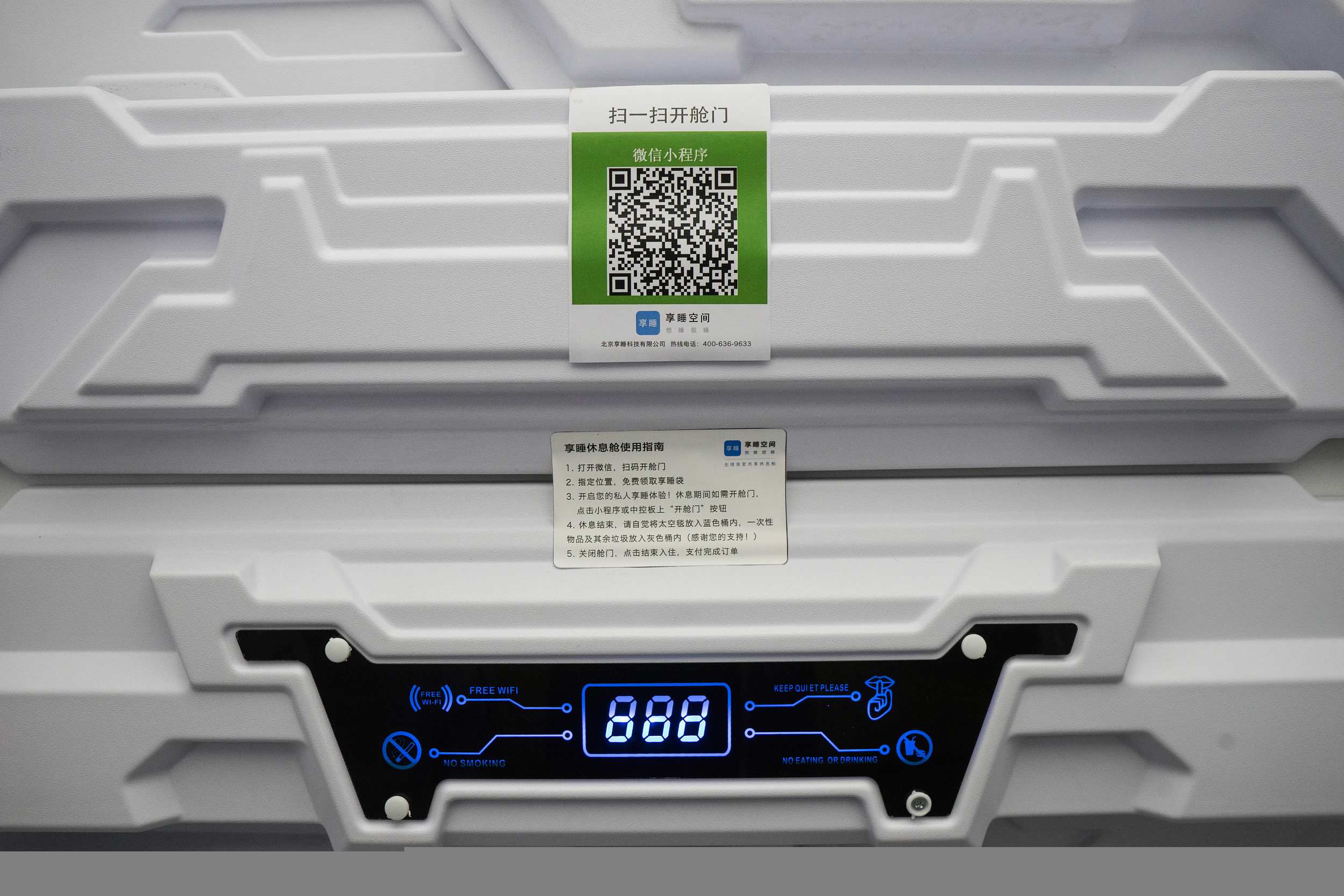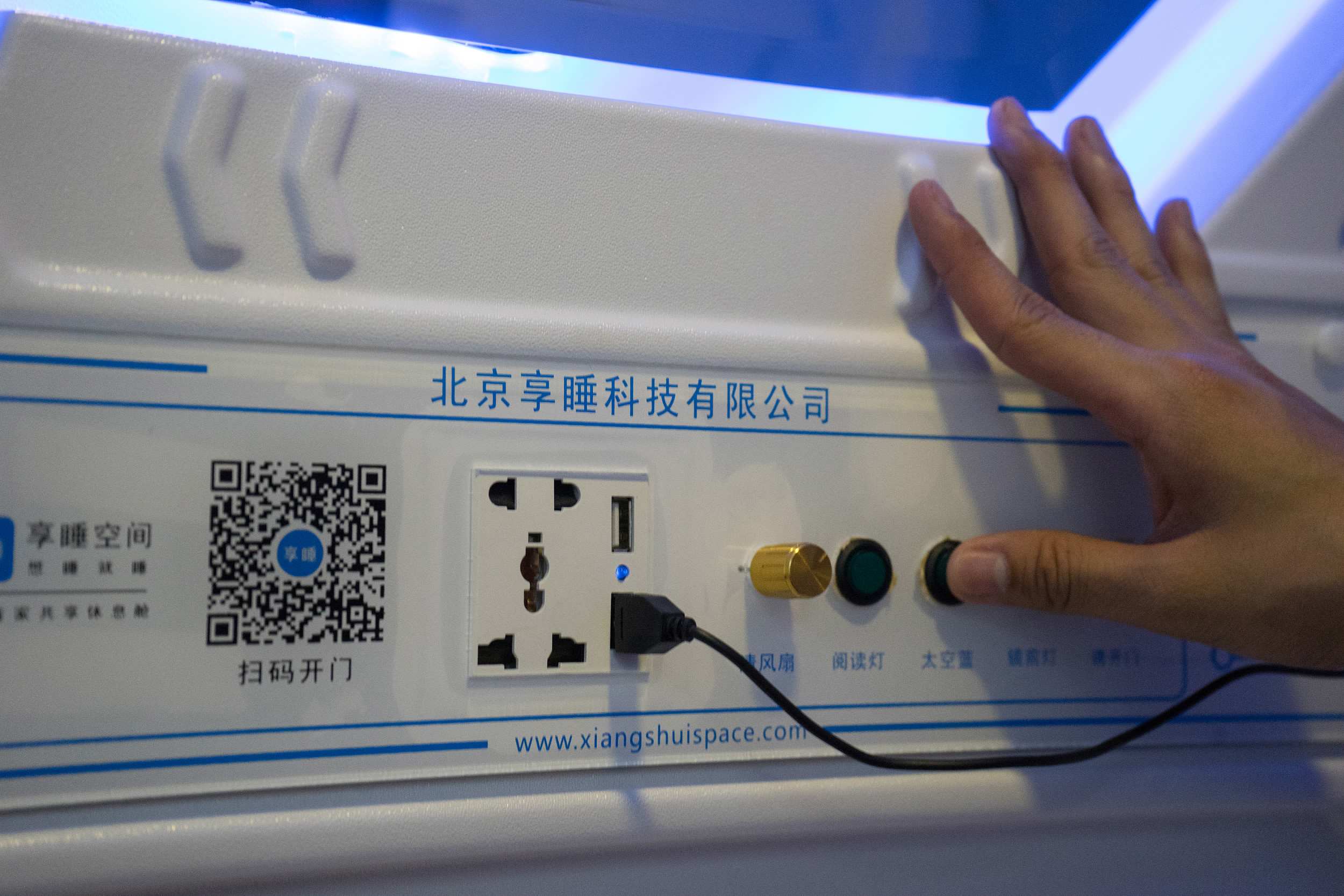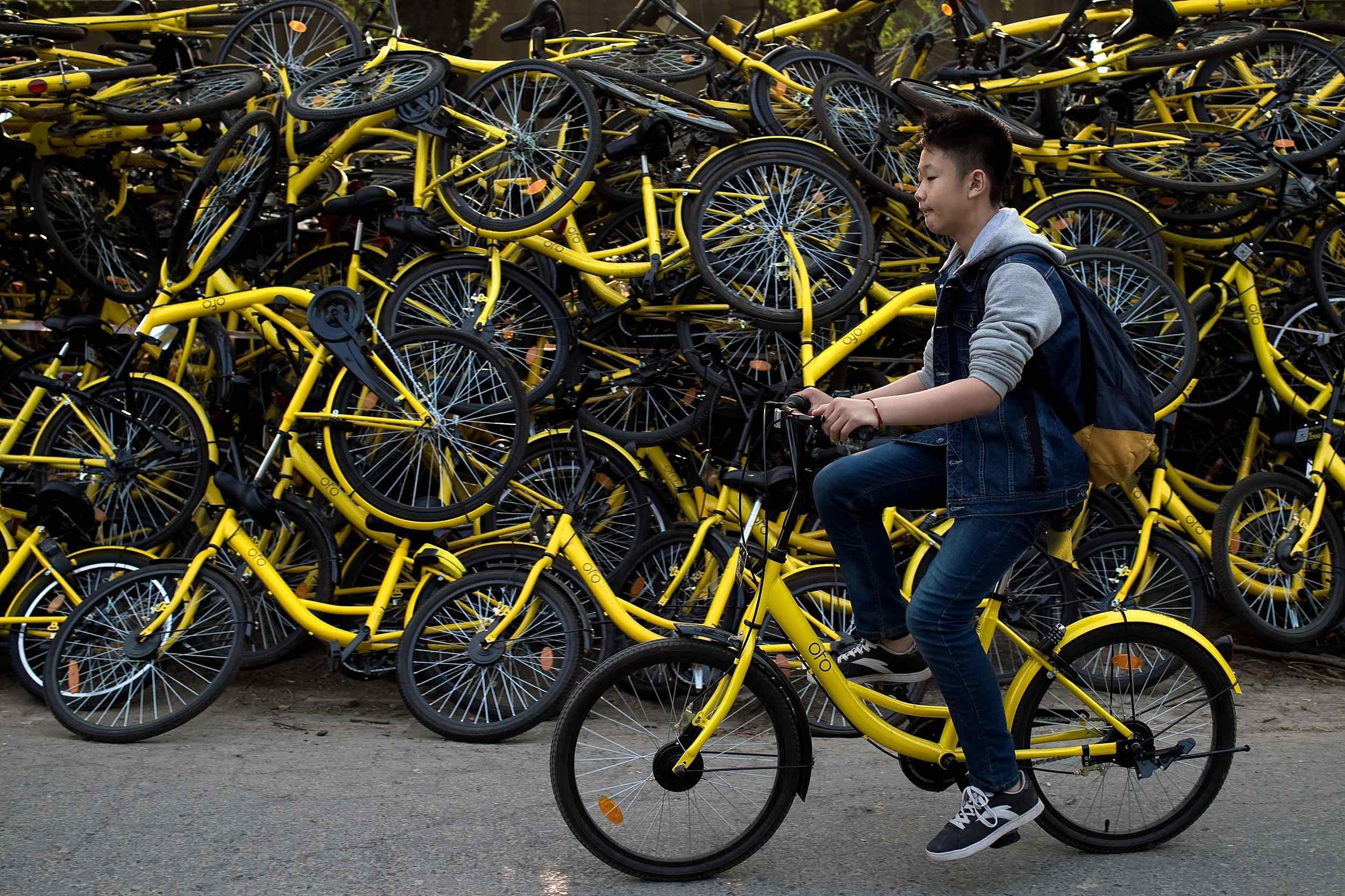
Tech & Sci
19:54, 11-Jul-2017
Beijing rent-a-capsules provide haven for daytime power nappers

A hotel in Beijing has introduced sleeping capsules which office workers can rent for a much-needed afternoon power nap.
The capsules, located in high-tech hub Zhongguancun in the city's Haidian district, cost one yuan (0.14 US dollars) for three minutes during peak hours from 11 a.m. to 2 p.m.
At off-peak times, the pods cost one yuan for a five-minute block.
Users scan a QR code with their smartphone to open the capsule and pay the fee.

Customers simply scan the QR code to open the pod and pay. /VCG Photo
Customers simply scan the QR code to open the pod and pay. /VCG Photo
Equipped with disposable bedding, earplugs and an ultraviolet disinfection lamp, the capsules have been designed for office workers to recharge during the day.
You make your bed, you lie in it
"It's really meeting a rigid demand as many professionals have a difficult time finding a nice private place to nap," Han Yue, operations manager at Xiangshui Space, the Beijing-based start-up which launched the service told Reuters.
Han said her capsules, which are also available in Shanghai and Chengdu, differ from Japan’s arguably more famous capsule hotels because she is targeting customers looking for a quick nap, not an overnight stay.
But with rental charges capped at 58 yuan (8.52 US dollars) some staff working overtime are renting the pods to spend the night close to work.

The capsules come complete with power and USB points to charge cellphones and other portable devices. /VCG Photo
The capsules come complete with power and USB points to charge cellphones and other portable devices. /VCG Photo
Han said Xiangshui Space has plans to launch the service in Qingdao, Nanjing and Shenzhen by early August.
China's rapidly expanding "sharing economy", which has seen consumers able to rent everything from bicycles to basketballs to umbrellas, has inspired a wave of similar enterprises backed by a funding frenzy powered by so-called angel investors and venture capital firms.
The sector is expected to grow around 40 percent this year to 4.83 trillion yuan (705 billion US dollars) and by 2020 it could account for a tenth of GDP.
Gong Zhe, CGTN Science and Technology Editor
"The concept of the capsule hotel is not new to Chinese people. Beijing already has some hotels offering sleeping pods, such as the Rainbow Youth Hotel and the Yogurt Youth Hotel. These capsules are very similar to the original Japanese ones introduced in 1979."
"What makes this Beijing mini-hotel stand out is the QR code, which makes it possible for the hotel to operate automatically without staff. It’s more like a rent-a-bed, just another aspect of the sharing economy boom."

Rental bicycles are arguably the most famous product in China's "sharing economy" boom. /VCG Photo
Rental bicycles are arguably the most famous product in China's "sharing economy" boom. /VCG Photo
(With input from Xinhua and Reuters)
1km

SITEMAP
Copyright © 2018 CGTN. Beijing ICP prepared NO.16065310-3
Copyright © 2018 CGTN. Beijing ICP prepared NO.16065310-3